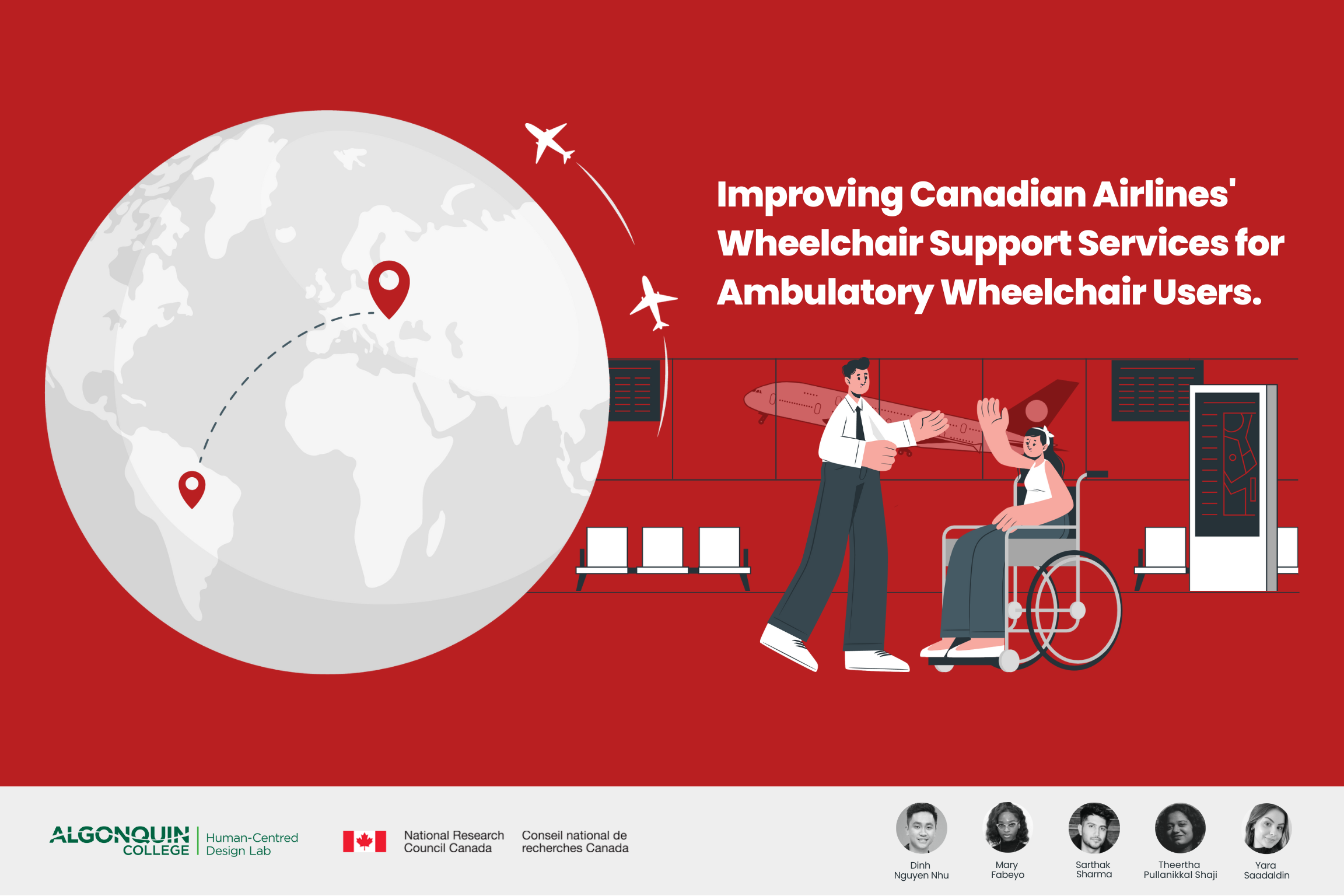Improving Canadian Airlines’ Wheelchair Support Services for Ambulatory Wheelchair Users
Posted on Friday, July 12th, 2024

| Client | Centre for Air Travel Research (CATR), National Research Council of Canada (NRC) |
| Professor(s) | Jed Looker Raphael Joseph |
| Program | Interdisciplinary Studies in Human-Centred Design |
| Students | Dinh Nguyen Nhu, Mary Fabeyo, Sarthak Sharma, Theerth Pullanikkal Shaji, Yara Saadaldin |
Project Description:
The project is an innovative research study conducted by a team of five student researchers with the Human-Centered Design Lab at Algonquin College for the Centre for Air Travel Research (CATR). We aim to address the specific challenges ambulatory wheelchair users face in air travel, particularly the delays and inconsistencies caused by the unpredictable demand for wheelchair services offered by Canadian airlines. This project strives to ensure a seamless, dignified travel experience for ambulatory wheelchair users—passengers with mobility challenges who can walk short distances but require wheelchair assistance for long distances.
Through extensive research, which included an online survey and interviews with both participants and subject matter experts, we explored insights and mapped out themes related to challenges ambulatory wheelchair users face with wheelchair services offered by Canadian airlines. With this, we formulated the problem statement: What gaps exist between Canadian airline regulations and the implementation to ensure effective and timely wheelchair services for travellers?
We focused on developing proactive solutions that would minimize the delays and inconsistencies ambulatory wheelchair users face with wheelchair services. We introduced strategies for predictive wheelchair service planning and empathetic service protocols. We designed these measures to enhance the efficiency of wheelchair services and provide a better travel experience for users.
Our long-term vision is to implement these solutions across multiple airports and airlines through CATR’s extensive network. By setting a new standard for accessible air travel, we hope to see these practices adopted worldwide, benefiting countless air travellers who are ambulatory wheelchair users.
Throughout the development of this project, we gained valuable insights into collaborative design work, leveraging tools like Miro, Slack, and Microsoft Teams for effective online teamwork and communication. The design approach required flexibility, responsiveness to feedback, and the ability to adapt direction as needed. We learned that strong teams excel by leveraging individual strengths and maintaining open communication.
Video Presentation
Gallery

|

|

|

|

|
|